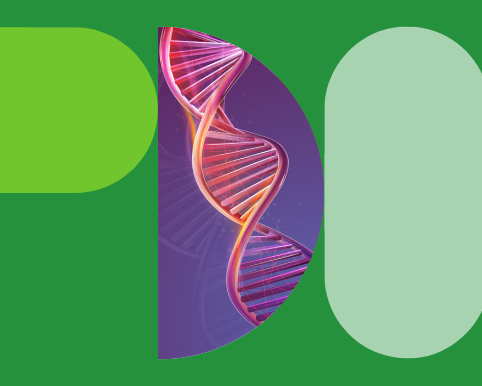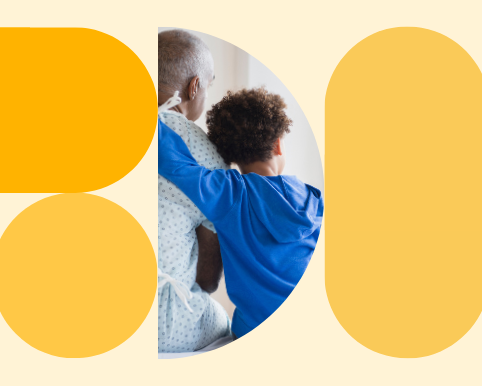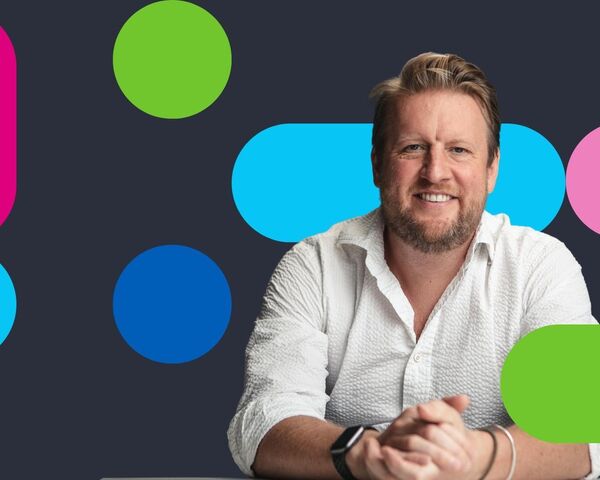Meet the Diverse Data team at Genomics England
By Diverse Data team onOur Diverse Data team aims to share more during the process to show the journey, and hopefully encourage others to course direct. This blog series is part of that ethos of working in the open.
Hello from the Diverse Data (DD) team at Genomics England! We’re a diverse (waaheeeey) team of bioinformaticians, ethicists, designers, data scientists, programme managers and community-builders.
Yoonsu Cho, Genomics Data Scientist (November 2022)
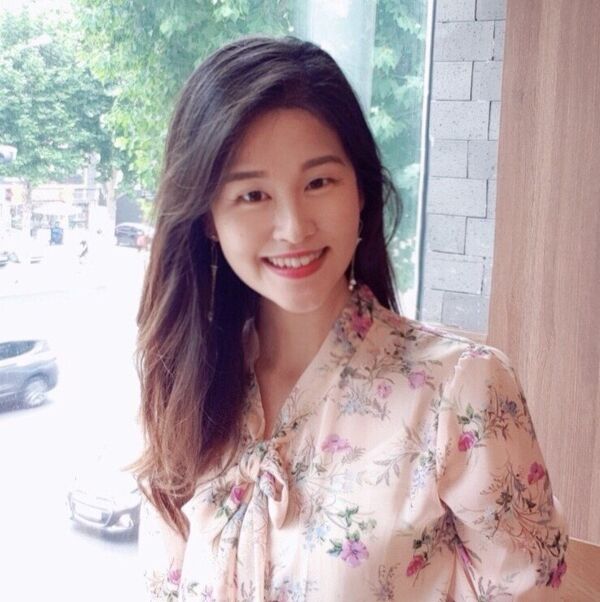
Yoonsu Cho, Genomics Data Scientist
What does your role actually involve?
As a Genomics Data Scientist, my role has two major objectives: 1) Understanding population structure in data; and 2) exploring genetic diversity between populations and its consequence on disease aetiology. This includes identifying similarities and differences in disease distribution between populations that could help with development of interventions to prevent and treat disease. I also contribute to development and improvement of genomic analysis tools.
What were you doing before in previous lives?
Before I joined GEL, I used to work at the University of Bristol (MRC-MRC Integrative Epidemiology Unit) as a postdoc. My interest was developing genetic analysis methods and tools (e.g., Mendelian randomisation) that can be used in multiple ancestral populations. I was also involved in various collaboration projects using non-European populations to explore differences in genetic effects on disease between populations.
Why you wanted to join the programme/GEL/why does the problem motivate you?
I have always been interested in how scientific research can help to improve public health. This interest led me to undertake my doctoral studies in public health science and inspired my move to GEL to conduct research that has a direct impact on public health. GEL has very unique data including individuals from a diverse range of ancestral populations. This is appealing to me as it provides a special opportunity to investigate whether we can use the same treatments in different ancestral populations and how we can minimise the gap in disease treatment between populations.
Top 3 articles/books/podcasts you’ve consumed on this topic
- Race and Genetic Ancestry in Medicine — A Time for Reckoning with Racism. N Engl J Med 2021; 384:474-480 DOI: 10.1056/NEJMms2029562
- The language of race, ethnicity, and ancestry in human genetic research. https://doi.org/10.48550/arXiv.2106.10041
- Genomics is failing on diversity. Nature 538, 161–164 (2016). https://doi.org/10.1038/538161a
When not at work you can be found…
At nice restaurants, cafe with good decaf (!) coffee, or gym
Where can people contact/follow you?
Email: yoonsu.cho@genomicsengland.co.uk
LinkedIn: https://www.linkedin.com/in/yoonsu-cho-068a2b238/
What is your guilty pleasure?
Greasy pizza from Papa Johns..
What is your favorite thing to do in the summertime?
Going for a long walk
What is your hidden talent?
Cooking (!)
What do you wish you learned sooner?
Cycling
Would you rather have regrets about actions or inactions?
Actions
Sam Tallman (h/h)— Genomic Data Scientist (January 2022)

Sam Tallman, Genomic Data Scientist
What does your role actually involve?
As a data scientist, I am tasked with finding patterns in data that can generate insights and inform the strategy of the Diverse Data Initiative, and Genomics England more generally. This can involve anything from simply describing the diversity of our many programme participants, to exploring how this could bias our ability to discover causative variants for a particular disease.
What were you doing before in previous lives?
Before joining Genomics England, I was doing my PhD research generating whole-genome sequences from under-represented groups across sub-Saharan Africa. I was particularly interested in understanding how subtle variation in these sequences across individuals may have been shaped over time by forces such as migration and admixture. Basically, I use DNA to understand where people’s ancestors went and who they met along the way!
Why you wanted to join the programme/Genomics England/why does the problem motivate you?
It was during my undergraduate degree that I learned about the incredible potential of genomics to transform healthcare and improve people’s lives. Unfortunately, I also learned about the substantial diversity gap that exists in human genomics and the consequences this can have on predictive/diagnostic accuracy in individuals with different ancestries. It is my steadfast belief that the potential benefits of genomics are too great to not be equally and fairly shared amongst everyone, regardless of the circumstances of one’s birth. I knew that if there was a chance that I could contribute, even a small amount, to addressing the pressing issues surrounding the lack of diversity in genomics, I had to try!
Top 3 articles/books/podcasts you’ve consumed on this topic
I’m going to be boring and go for some of the amazing studies and reviews by scientists on this subject matter…
- Alicia Martin et al. Current clinical use of polygenic risk scores will risk exacerbating health disparities. Nature Genetics (2019)
- Deepti Gurdasani et al. Genomics of disease risk in globally diverse populations. Nature Reviews Genetics (2019)
- Lucia Hindorff et al. Prioritizing diversity in human genomics research. Nature Reviews Genetics (2017)
When not at work you can be found…
With friends and family, sleeping, and eating. The simple things in life are the things I prioritize outside of work! I also have to admit, being a born and bred 4th generation Arsenal fan, I do reserve an inordinate amount of time and mental space to care (way too much…) about what happens to complete strangers as they make their way around a 100m x 70m bit of grass once or twice a week.
What was your favourite subject at school?
Biology
What is your deepest fear?
Tottenham Hotspur winning the Champions League
What is your favourite movie genre?
70’s Kung-Fu
What is your favourite type of weather?
Brisk yet sunny.
Are you in the profession you dreamed of as a child?
My dream job as a child was to be the person that (I theorised) must have to taste the Queen’s meals for poison before she ate them to get free food every day. So… no.
Where can people find you?
Email: [email protected]
LinkedIn: https://linkedin.com/in/samuel-tallman-55635b9a
Marie Nugent (s/h) — Community Manager (May 2022)
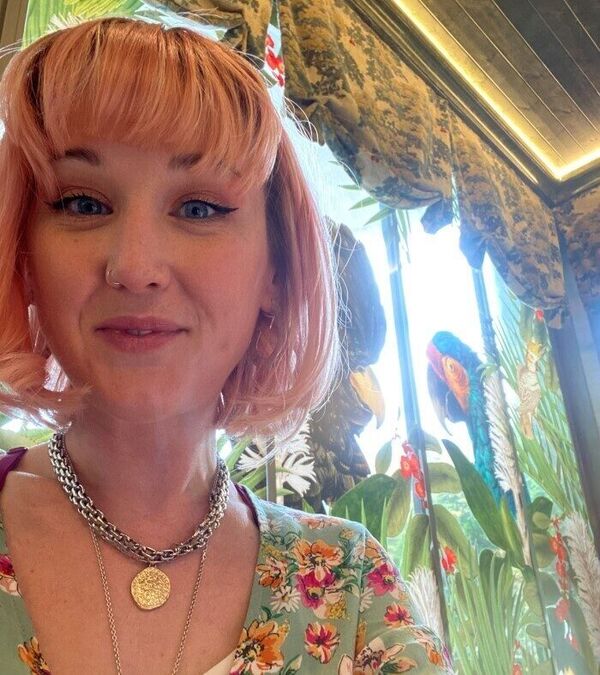
Marie Nugent, Community Manager
What does your role actually involve?
My role is to facilitate interactions between Genomics England’s Diverse Data programme and the various communities that are relevant to it such as other colleagues with Genomics England, a wide variety of researchers, clinicians, publics and patient groups.
What were you doing before in previous lives?
I stumbled into studying Genetics at university and did a PhD in circadian biology before venturing into science communication and stakeholder engagement for Mars Petcare. I then spent over 5 years as Public Engagement Manager for University of Leicester and spearheaded a range of initiatives that explored what meaningful engagement looks like across a range of contexts and people, for both research and for civic engagement purposes. I’ve also worked in pharmacies, on checkouts in supermarkets and as a barmaid so I know how to throw a party.
Why you wanted to join the programme/Genomics England/why does the problem motivate you?
I get particularly excited when I have an opportunity to explore a complex challenge that no one single person or idea can fix so it requires collective action, deliberation and relationship building. Joining the Diverse Data team at Genomics England has given me this in abundance and I get to explore this knowing that I am contributing to building more equitable healthcare for all in the future. It’s a great privilege to be here.
Top 3 articles/books/podcasts you’ve consumed on this topic
- Angela Saini’s books Inferior and Superior are excellent at explaining how science has been used and abused to reinforce and prioritise maleness and whiteness in research and society.
- The Blindboy Podcast is also great for discovering links between colonial history, capitalism, art history, mental health and current affairs. I love it, particularly his ‘hot takes’. It helps me shift my perspective to explore some of the current issues we are trying to unpick today around social equity that is the consequence of hundreds of years of conditioning.
When not at work you can be found…
Either walking along Southend seafront, in the pub or on my phone scrolling through Instagram — I’m really interested in the current conversations unfolding on there around relationships, gender and race and I follow people who take a public academic-style role to unpick these. In particular, I enjoy following Alok Menon, Emma Dabiri, Jameela Jamil, Rachel Cargle, Brene Brown, Esther Perel, Lynae Vanee, Liz Pemberton — just to name a few!
What is your go-to karaoke song?
"Jenny Don’t Be Hasty" by Paolo Nutini or anything by Amy Winehouse (depending on how many wines I’ve had)
What was your last impulse buy?
I bought a dryrobe which is basically a huge, quite expensive, sleeping bag-style coat for when you do things like wild swimming and adventurous stuff like that. I just moved to Southend seafront (which isn’t even sea — it’s estuary) and got a bit excited about going swimming, which I’m yet to do.
What has been your favourite age so far and why?
I loved being 22. I moved to Leicester to start my PhD and it really felt like I was breaking away from all I’d known before! I met amazing people, went to so many gigs and had lots of fun. 2012 was also a great year with the Olympics and all sorts. Closely followed by being alive and well right here and now!
If you were to devote the rest of your life to philanthropy, what cause would you choose?
My dream charity would be to run an urban farm that homes sick and unwanted animals and create programmes for people with disabilities and illnesses to come and interact in some way. I think there is something magical in supporting people in need to give care to others and make connections that goes beyond whatever it is that otherwise limits them. I also think it’s really important for people to feel they can just live and be, without needing to be productive in order to have value.
What is humanity’s worst quality?
Greed.
Where can people find you?
Email: [email protected]
LinkedIn: https://www.linkedin.com/in/marie-nugent/
Twitter: @Mimi_Nugget
Ellie Orbell (s/h) - Delivery Manager (October 2022)
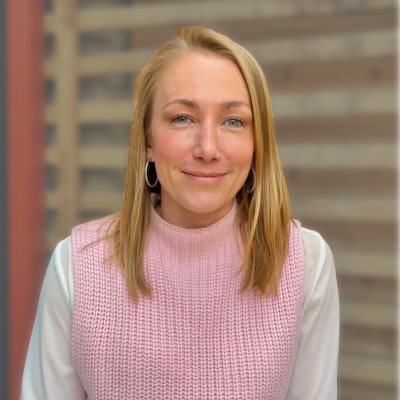
Ellie Orbell, Delivery Manager
What does your role actually involve?
As Delivery Manager for Diverse Data, my role is very much about supporting the team to ensure we continue to make good progress and get things done. This involves being plugged into all aspects of the initiative and includes everything from being a strict timekeeper in meetings to project planning and monitoring. I very much see myself as the team cheerleader who rallies the troops!
What were you doing before in previous lives?
I started my career in education as a secondary school English teacher before moving into SEN teaching and working with students with complex learning needs. It was here that I completed my MA in education, exploring the suitability and inclusivity of a national communication curriculum. This was an amazing experience that allowed me to work with some of the most inspiring young people and their families. After five years in education, I decided to challenge myself and move into the private sector to explore a career outside of teaching. I took on an operations role at an executive search firm that focused on serving the deep tech sectors; it was here I started to learn about some of the wonderful things science and technology could do to make the world a better place. Through this role, I was lucky enough to have worked in a spinout startup where I managed a platform from inception through to its commercial launch.
Why you wanted to join the programme/Genomics England/why does the problem motivate you?
When I first learned of the Diverse Data initiative, the complex nature of the work they were doing really resonated with me. The Diverse Data initiative aims to reduce health inequalities for minoritised communities in genomic medicine. Despite not having a science background, I saw GEL and the DD team as an amazing opportunity for me to have a positive impact on someone else’s life. I don’t think there could be a better motivation to get up for work every day than that!
Top 3 articles/books/podcasts you’ve consumed on this topic
- GEL’s very own, The G Word podcast.
- A Brief History of Everyone Who Ever Lived, Adam Rutherford.
- This isn’t quite an article, book or podcast BUT … A webinar in the DD Genomic Equity Series - History of Eugenics with Adam Rutherford. This was a really interesting intro to a topic that I knew very little about and spurred me on to start reading his first book.
When not at work you can be found…
In the gym. Most of my days start by cycling to the local gym and enduring an intense workout. I’m someone who likes and needs to be on the go - there’s no better way to start the day than with a sweaty endorphin hit!
What dish do you cook the best?
Mushroom risotto (if I do say so myself)
What is your favourite thing to do in the Summertime?
Since living in London, I love cycling to the local park, walking to the top of the steepest hill and watching the sun set over the city. Morning or evening? Both. I’m one of those annoying people that get up at the crack of dawn to ‘seize the day’ but also stay up way too late.What was your last impulse buy?
A banana tree which is currently taking over my living room.What is the best advice you ever received?
To try not to worry so much about the past or constantly look to the future. All the time you are directing your attention elsewhere, you are missing all of the amazing things that are happening right in front of your eyes.Where can people find you?
email: [email protected]
Linkedin: https://www.linkedin.com/in/ellie-orbell-74374917b/
Karoline Kuchenbaecker - Scientific Lead (May 2022)
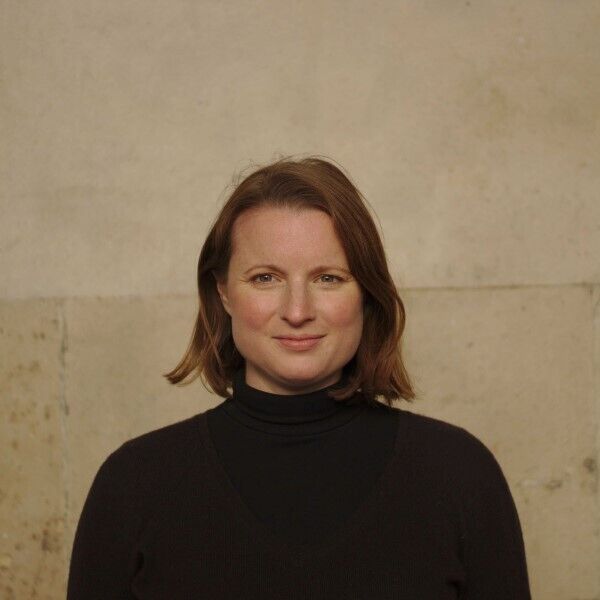
Karoline Kuchenbaeker, Scientific Lead
What does your role actually involve?
As the Scientific Lead, I offer expertise in genomics and diversity as well as experience in leading small and large initiatives. I help shape the general direction and strategy, support the research DD is doing and co-lead the major programmes we are setting up.
What were you doing before in previous lives?
In my other life I am Professor of Genetic Epidemiology at University College London where I lead the “Diversity in Genomics” group. Our research focusses on genetic and environmental risk factors for diseases by leveraging the unique characteristics of diverse populations. We have developed methodological standards for diverse samples as well as innovative methods to empower locus discovery and to assess transferability of genetic risk factors. Besides research, I supervise students, give lectures, try to solve all sorts of problems, and also support my university in building an inclusive, diverse and supportive environment as well as being a place of knowledge and innovation.
Why you wanted to join the programme/Genomics England/why does the problem motivate you?
I am extremely passionate about doing research about and lobbying for more diversity in genomics. I am a stats and big data nerd and did a PhD in Genetic Epidemiology. When one day a student gave me a hint of what it meant to them personally that we were systematically excluding people like them from genomic research studies, I knew what I wanted to do in my career.
Top 3 articles/books/podcasts you’ve consumed on this topic
I know, it’s neither 3 nor pieces that seem to be directly “on this topic” but to begin to understand the lack of diversity, you have to go far far beyond genomic science.
- Adam Rutherford: Control – The dark history and troubling present of eugenics
- Michael Marmot: The health gap
- Audre Lorde: Your silence will not protect you
- Arundhati Roy: The god of small things
- Hannah Arendth: Eichmann and the holocaust
- Popejoy & Fullerton: Genomics is Failing on Diversity
When not at work you can be found…
running after my little one. I am sure I used to have a life at some point, not sure what happened to it?!
What’s your favourite color?
Red. I made the choice in primary school after every single other kid in my class had declared blue was their favourite colour.
What would you change about yourself?
Read previous answer.
Morning or evening?
Night.
What is your favourite breakfast?
Coffee + cigarette (I quit smoking many years ago)
Where can people find you?
Email: [email protected]
website: www.uclhumgen.com
Twitter: https://twitter.com/KKuchenbaecker
Trupti Patel (s/h) — Policy Manager (September 2023)

Trupti Patel — Policy Manager
What does your role actually involve?
My role is primarily to develop an ELSI (Ethical, Legal and Social Implications) framework focussing on equity in genomic medicine and research. Through running deliberation workshops with members of diverse communities in England, I pose them questions about what their expectations are of genomic medicine and research, with the aim to construct a way of working which is acceptable to members of these communities and builds trust. These range from the seemingly mundane questions on consent practices to big topics such as medical innovation for those of non-European ancestry through access to the NGRL (our bio- and tissue- bank), and what diverse communities’ expectations are for provision of these innovations in low- and middle- income countries where they may be the most impactful.
What were you doing before in previous lives? What you wanted to join the programme/GEL/why does the problem motivate you?
I initially trained as a scientist but found out pretty quickly that I thought that the effects of science upon the world were much more interesting than being in a lab! After slogging through a PhD, I decided to work in academia at the interface of government and science policy, primarily thinking about public expectations when it comes to science and innovation. One of the projects I worked on looked specifically at ethical research frameworks for better accountability in public funds and public trust in science. After getting sick of academia, I wanted to use my skills to help diverse communities, so I worked at the Race Equality Foundation on a study looking to evaluate a parenting program for ethnic minority groups, originally developed as an anti-violence programme in the US, it is currently funded by the prevent programme in the UK. It was an interesting programme because of its structure – it is found to work, primarily because a lot of the course is community-led and trust in local communities was so high relative to those in higher levels of government, or even local government. Anyway, once I saw this position open up at GEL I saw this position open up at GEL I jumped at the opportunity because it brought together many interests I have had in my past lives!
Top 3 articles/books/podcasts you’ve consumed on this topic
- https://journals.sagepub.com/doi/10.1111/j.1467-954X.1984.tb00113.x basically, what it means is you have to be one in order to know. There are social processes which happen when people produce knowledge, and often decision making which is done as a consequence of evidence generation does not end up being in the interest of the population it most effects. This paper highlights this.
- Superior: The Return of Race Science. Marie and I agree on this one.
- Castes of Mind – Colonialism and the making of Modern India – Nick Dirks. This one demonstrates what I mean when I talk about how it is really important to understand that academic interpretation of evidence is just that – an academic’s interpretation. This book highlighted to me how ridiculous it is when someone tells me they know more about who I am than I do. When it comes to research on those of non-European ancestry, I am sure many will relate!
When not at work you can be found...
Walking around London. I like everything about big, bustling cities where people from lots of different cultures come together, live together and learn about each other. Often through food!
Preferred contact (s) to be on the website (email, LinkedIn, Twitter etc)
Email: [email protected]
What is your last Google search:
Unicorns real
What was your last impulse buy:
A garment steamer
If your pet could talk, what would they ask you?
Why are you walking like that?
What is your favourite thing to do in the summertime?
Long walks
Expensive presents or homemade presents?
100% Homemade!!!
You can find more information on what the Diverse Data is up to here.
